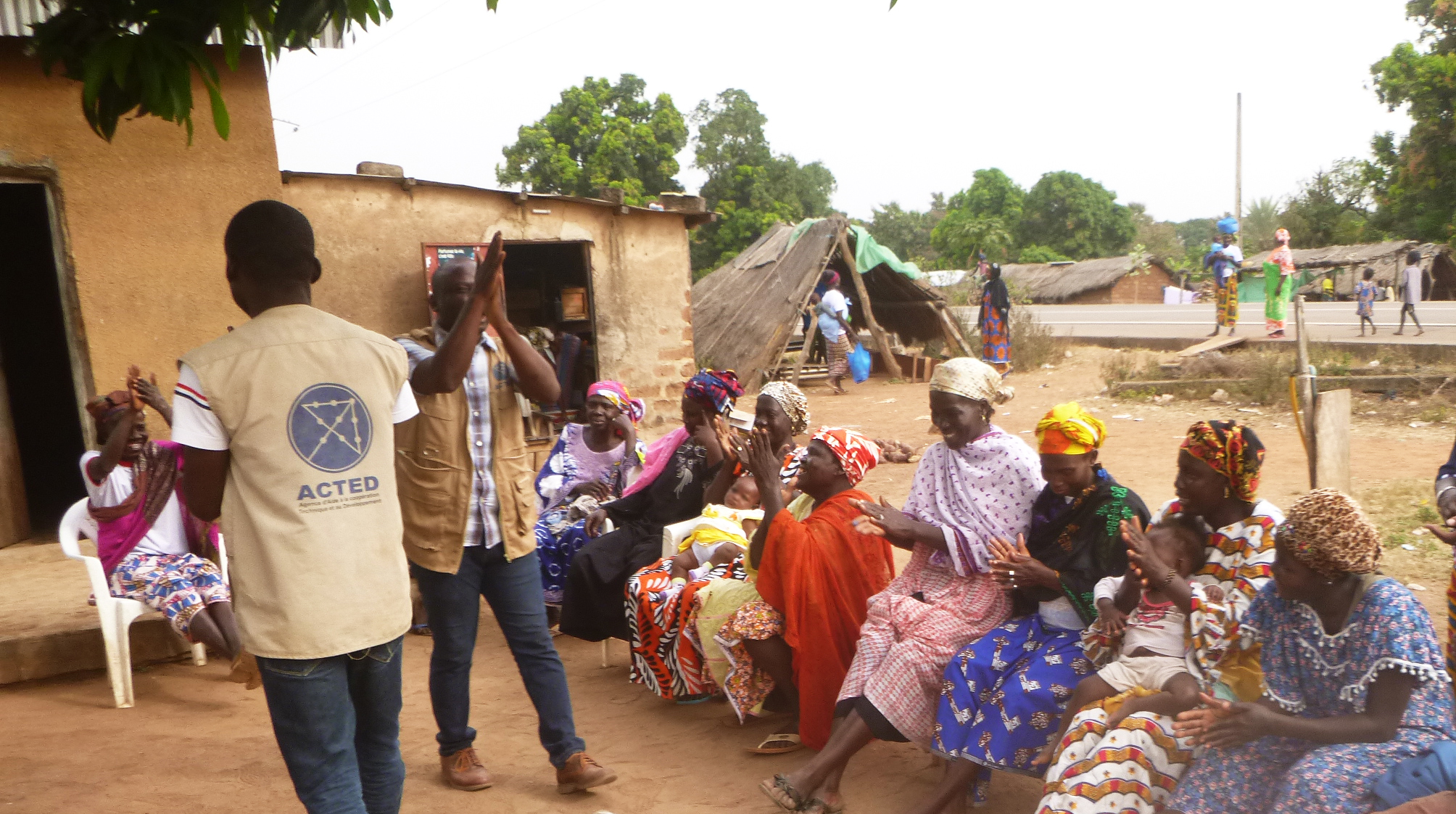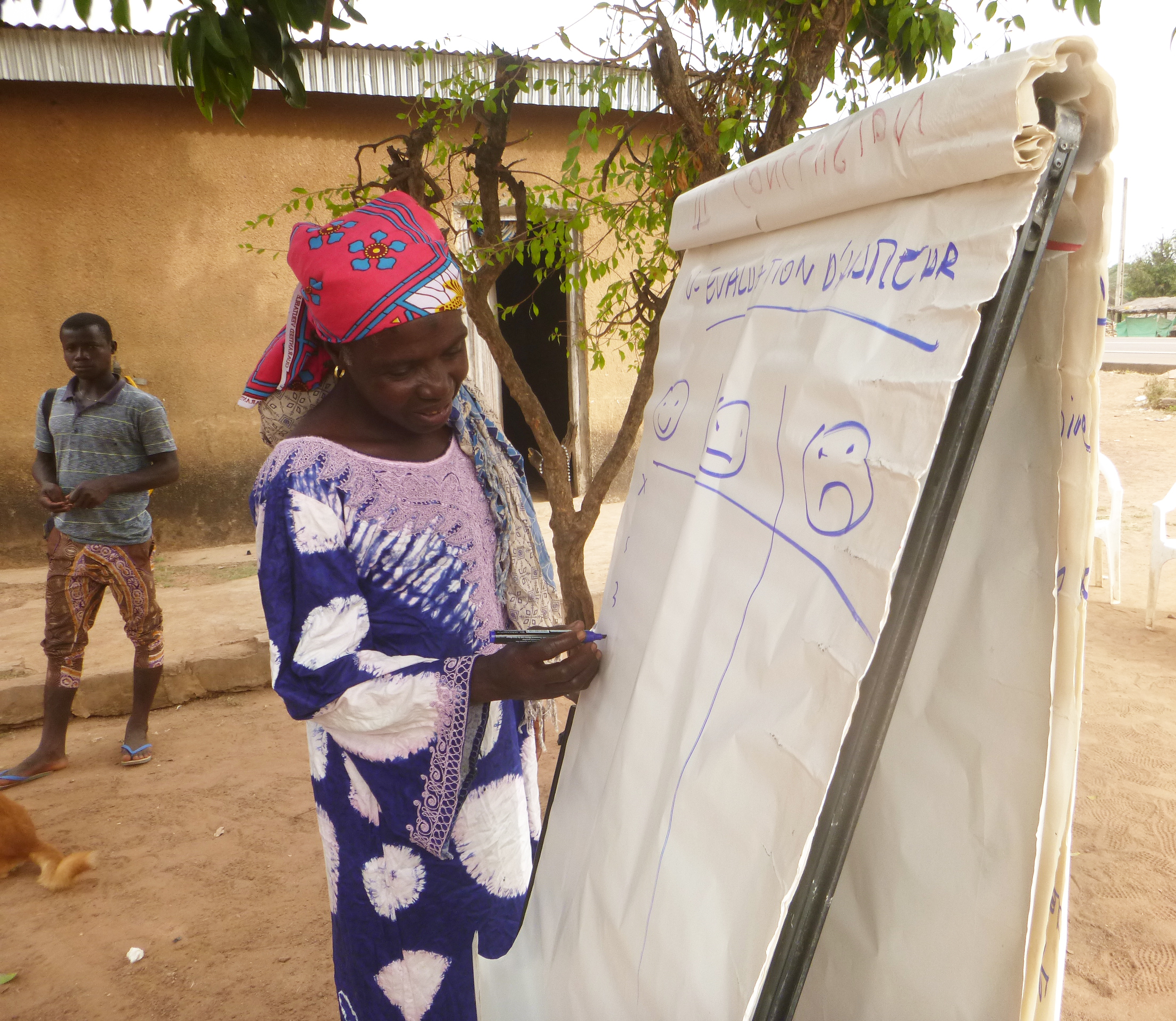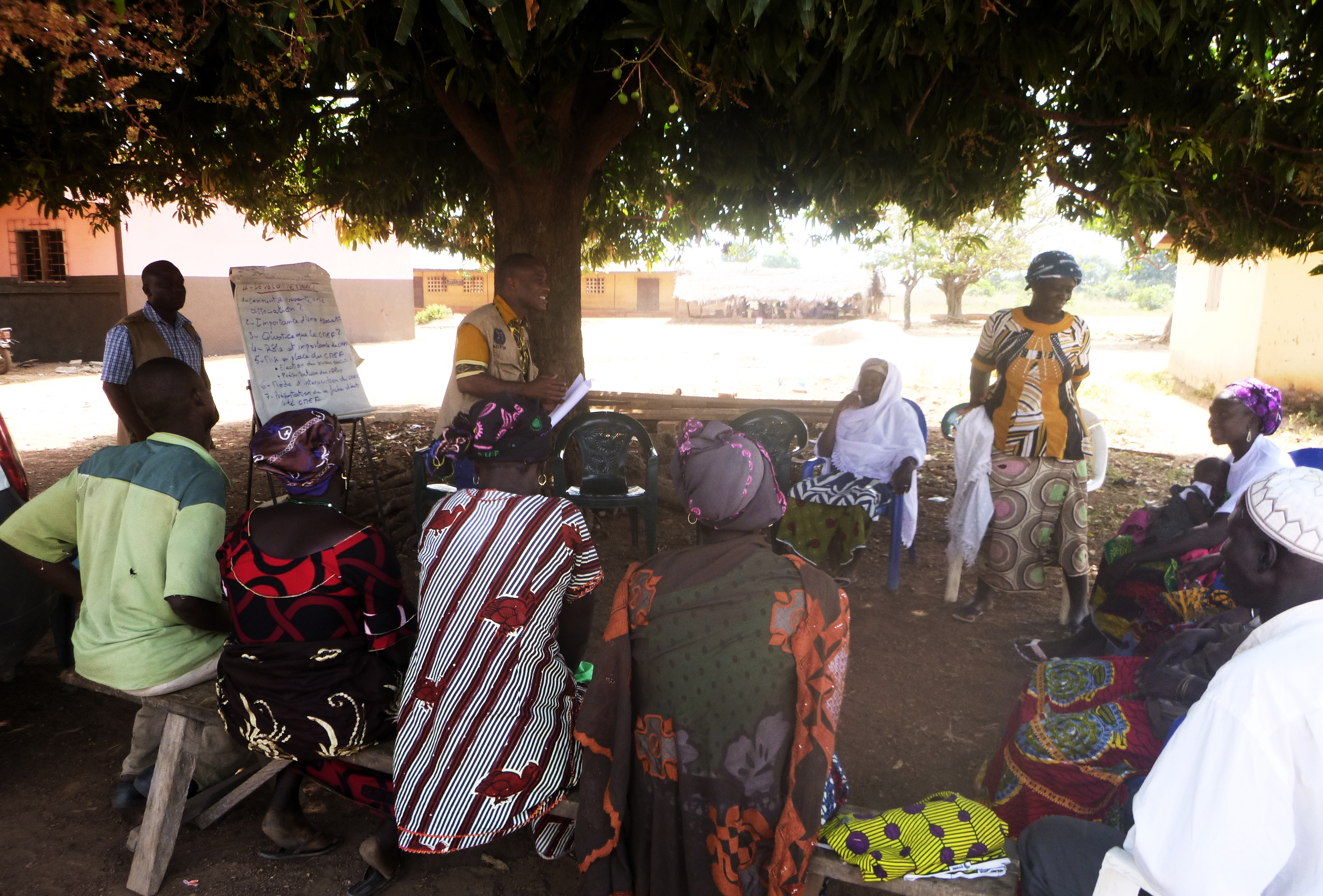Present in Côte d'Ivoire since 2011, Acted is deploying an intervention strategy aimed, on the one hand, at strengthening the capacity of communities to cope with the pressure caused by the influx of asylum seekers from Burkina Faso and Mali and, on the other hand, at supporting the most vulnerable populations in coping with the effects of climate change. The mission's flagship initiatives are: i) Land regeneration according to the THRIVE approach: Acted regenerates land affected by prolonged droughts and strengthens agro-pastoral livelihoods ii) Improvement of social cohesion: Acted supports local conflict management committees and promotes consultation between communities for the shared and sustainable management of natural resources.
Since 2021, the northern borders of the Ivory Coast have seen a large influx of asylum seekers from the Sahel, with 70,500 arrivals identified by the UNHCR in November 2024. Approximately 12,000 asylum seekers are spread across two sites set up by the State (Timala and Nioronigué), while 40,000 to 50,000 others live outside the camps, often accommodated by host families. This situation exerts, on the one hand, additional pressure on local resources, exacerbating historical agro-pastoral conflicts, and, on the other hand, weakens border regions threatened by the infiltration of non-state armed groups (NSAGs). Added to this is significant climatic vulnerability linked to the low adaptive capacity of the agricultural sector, declining soil fertility, significant massive deforestation, and increased drought and torrential rain.
Thus, in order to support host families and refugee populations, Acted implements humanitarian and development programs focused on the one hand on the regeneration of agricultural land affected by climatic hazards and on the other hand on strengthening social cohesion.
Acted in Côte d’Ivoire
Since 2011, Acted has implemented numerous projects in early recovery, the empowerment of vulnerable populations and the promotion of climate resilience. After a three-year absence, Acted resumed its activities in 2022 to support the Impact Initiatives programs in the Gulf of Guinea and develop new projects.
In Côte d’Ivoire, Acted is currently implementing a program in the Tchologo Region (sub-prefecture of Niéllé) to regenerate land (5,000 hectares) affected by prolonged droughts (water shortages, declining agricultural yields, decreasing pastureland). This project, based on Acted’s innovative Towards Holistics Resilience in Vulnerable Environments (THRIVE) approach, will run for two years (launched in October 2024) and will help increase the production and productivity as well as the resilience of Niellé’s farming communities in the face of climate change through the adoption of more sustainable agro-pastoral practices.
The mission’s intervention strategy also relies on the expertise and experience of local organizations for an integrated approach that meets the needs of vulnerable communities affected by the crisis. This is based on the development of strategic partnerships at the local and national level to promote consultation between communities and the adoption of innovative and sustainable ecological practices.
The programmatic strategy of Acted’s mission in Côte d’Ivoire is based on land regeneration according to the Towards Holistic Resilience in Vulnerable Environments (THRIVE) approach. Acted is carrying out regeneration activities on 5,000 hectares of land affected by prolonged droughts. The main objective of the THRIVE project is to strengthen the climate resilience of vulnerable communities by combating ecosystem degradation, reducing poverty and mitigating conflicts over natural resources. This initiative will improve livelihoods through income-generating activities and strengthen social cohesion.


